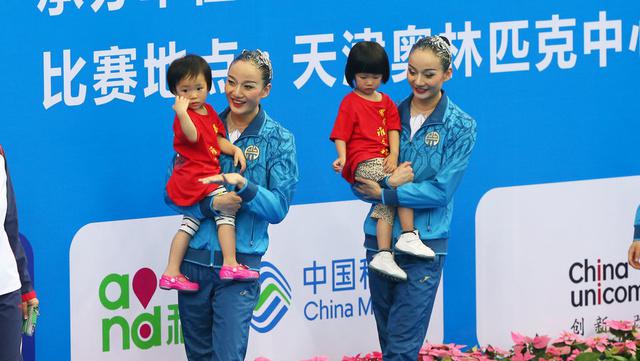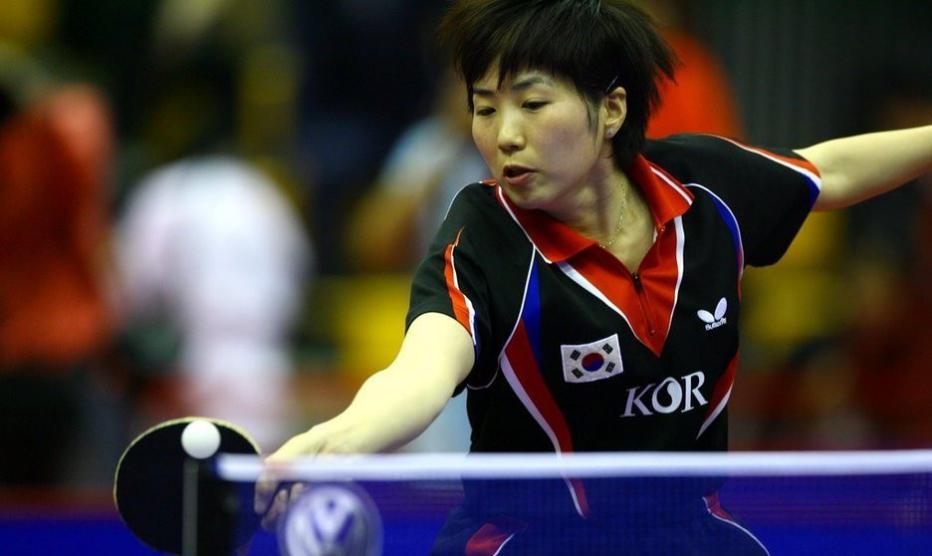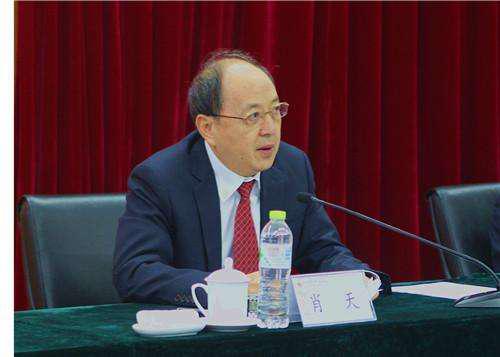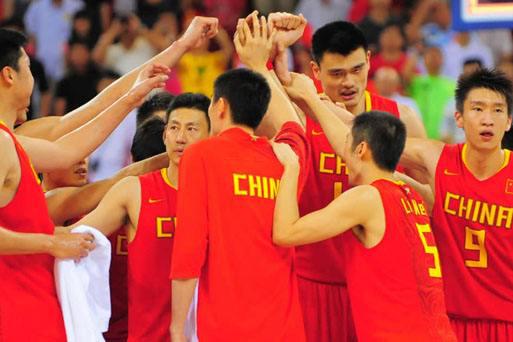Selecting insiders and manipulating competitions … God knows what China sports has experienced in recent years.
CCTV News:A few days ago, Fiona Fang magazine sponsored by Procuratorial Daily published an article entitled "Shocking Corruption at the Top of Sports in China". The article listed some relevant measures and some specific cases of anti-corruption in China sports since the 18th National Congress. How did China sports experience the pain of reform in the past five years? Xiaobian tells you through several stories.
Twin sisters regret retiring.

In May, 2017, twin sisters Hua Jiang Wenwen and Jiang Tingting returned to the stadium to win the gold medal at the award ceremony of the Flower Tour Double Event in the 13th National Games. Four years ago, because of a controversial referee’s score, the Wen Ting sisters, a world-famous flower swimming group, only achieved the third place in the National Games, ending their sports career with a bronze medal, while the host group Liaoning won the championship.
The nearly perfect performance was awarded a low score by the referee. The score of the Liaoning team on the final day of the same set of competition actions was 2.2 points higher than that of the previous day’s preliminaries. All doubts pointed to Yu Li, then the head of synchronized swimming department of the General Administration of Sports, but after the game, Yu Li said in an interview: "The referee did not violate the relevant general rules and regulations in the scoring process, so the final score was determined to be effective and the original result was maintained."
One year after the National Games in Liaoning, CPC Central Commission for Discipline Inspection made an all-round tour of the State Sports General Administration. After nearly one and a half months of inspection, the inspection results were announced, in which "the selection and selection of referees are not standardized, and the competition violates the principle of fairness and fraud" has become the focus of attention. On the third day after the announcement of the inspection results, the General Administration of Sports reported that an official was investigated for allegedly manipulating the competition and accepting improper bribes, and the person who was taken away was Yu Li, the former minister of the water polo department of the swimming center.
According to authoritative media reports, in the 12th National Games, in order to "take care of" the host team’s "gold medal task", Yu Li, the former head of the National Flower Tour Team, accepted a bribe of 200,000 yuan from the director of Liaoning Swimming Center, resulting in a major scoring dispute in the flower tour project.
In fact, the phenomenon of using authority to operate competitions like Yu Li is by no means a case in China sports, and it has even become a "hidden rule" in many projects. At the 10th National Games, Tian Liang, a famous diver, was suppressed because of his "bad relationship" with a leader of the China diving team. Before the game, in the referee’s lounge, a sports executive demanded that "no matter how well Tian Liang dances, he can only give 8.5 points at most". In the competition, after a perfect entry in Tian Liang, except one referee who gave a high score of 9.5 according to the standard, other referees really only gave 8.5 points. The referee who gave a high score finally lost the qualification of "best referee" and resigned soon after offending the leader.
Although the official has not announced the exact reason why Yu Li was taken away, what is certain is that she can’t escape the common crime of accepting bribes or corruption. According to several media reports, although Yu Li and her husband Liu Fengyan, as cadres of the General Administration of Sports, obtained two houses allocated by the General Administration, Yu Li thought that their living conditions were not good enough, and then bought a 200-square-meter commercial house at a price of nearly 51,000 square meters, but the problem is that no one knows where the money came from.
The table tennis player ran away angrily.

Donna entered the national youth team at the age of 13 and won the national youth championship at the age of 16. She was called a "genius" of table tennis by the outside world, but she never participated in the world championships and the Olympic Games in the national team. Later, she changed her nationality and went to South Korea to play. After that, she won 10 games in the Korean Table Tennis Championships, ranking first in the women’s singles.
"The Chinese Table Tennis Association does not pass the trials, but designates potential players in advance for centralized cultivation." According to media reports, Donna even said that South Korea is her motherland and hoped to enter the Olympic Games on behalf of South Korea, which caused great controversy.
According to titan sports, Yu Li was not taken alone to assist in the investigation. She was also taken with an ace coach of the weightlifting team. It is mentioned in the article that this involves an ugly drama of China weightlifting team in the 2012 London Olympic Games. At that time, Zhou Jun, a 53kg Hubei native who represented China team, failed in snatch three times, creating the worst result of China women’s volleyball since she participated in the Olympic Games in 2000, and Zhou Jun’s qualification for the Olympic Games was also the result of the struggle of local interests.
The similar shady selection is not a case. Take the national football team as an example. The list of players of each national team is full of disputes. As early as 2014, CPC Central Commission for Discipline Inspection also published the article "What can the professional reform do to save the" deflated football "for more than 20 years? Named the phenomenon of chaotic football management in China.
In this paper, the expressions such as "the examination and approval of the competition and the selection and appointment of athletes and referees are not standardized, open and transparent", "the competition violates the principle of fairness, practices fraud", "the development and operation of the competition are chaotic" and "the power of the units directly under the General Administration is highly concentrated" have aroused strong repercussions from netizens, especially the majority of football fans, and China football has once again been pushed to the forefront.
According to insiders, although the strength is the first in competitive sports, the selection of national team athletes has become a matter of great interest in many absolutely superior events, and it is easier to trigger some private power and money transactions.

The incident of Yu Li caused an uproar among the public, and also opened the tip of the iceberg of China sports corruption. On June 25th, 2015, official website, the Supervision Department of the Central Commission for Discipline Inspection, announced that Xiao Tian, deputy director of the State Sports General Administration, was suspected of serious violation of discipline and law and was currently under investigation. From July 2014 to July 2015, more than 10 officials were investigated in the State Sports General Administration, sports project management centers and provincial and municipal local sports bureaus in one year.
On March 21st, 2017, CPC Central Commission for Discipline Inspection launched a new round of inspection of the General Administration of Sport. According to the website of CPC Central Commission for Discipline Inspection, this patrol will achieve full coverage for 22 subordinate units of the State Sports General Administration, and "keeping an eye on key people, key matters and key issues" has become an important direction of this patrol. A series of chaos in the selection of athletes highlights the grim situation of corruption in sports, and it is urgent to crack down on the corruption of sports industry officials.
China men’s basketball team is struggling.

With the retirement of Yao Ming, Wang Zhizhi and other veterans, the performance of China men’s basketball team in the international arena plummeted. In addition to the reasons for the lack of success, there are deeper reasons for the fall of China men’s basketball team.
"It is inconceivable that even a company holding a three-person basketball game needs the approval of the Basketball Association. Internationally, the Olympic Games, NBA and other events are organized by non-governmental organizations and operated in a market-oriented manner. There is no official approval at all. "
According to Qiao Xinsheng, dean of the Institute of Integrity of Zhongnan University of Economics and Law, this is a disguised form of "power rent-seeking". The General Administration of Sports and the local sports authorities have formed a huge "interest chain" and turned it into a tool to gain the gray interests of the department.
This point was also mentioned by Yao Ming, a basketball star and member of Chinese People’s Political Consultative Conference, in the "National Conference". He believes that at the current stage of development, there is no inevitable reason for the approval of sports events.
Yao Ming pointed out that competition management and approval fees are often collected by the management centers of various sports, and the standards vary widely, which is easy to breed corruption; However, the sports management department interfered with the allocation of resources that could have been allocated by the market with the administrative hand, and also formed a monopoly objectively, which seriously hindered the enthusiasm of social forces for running sports and caused the fact of artificially setting a "threshold" for running competitions.
Yao Ming’s proposal was adopted in the government work report of that year. However, people in the industry believe that sports departments at all levels have implemented the examination and approval of sports events for many years, and it will be difficult to remove this "cake of interests" from internal reform.
In fact, it was not until the Central Inspection Team pointed out that "the examination and approval of sports events was irregular and opaque, highlighting the interests of departments" that the General Administration of Sports was forced to rectify its position, "canceling the examination and approval of commercial and mass sports events, and all other sports events were not required except national comprehensive sports events such as the National Games, the National Winter Games and the National Youth Games, and a few special types of sports events involving national security, politics, military affairs and diplomacy".
Facts have proved that the cumbersome examination and approval process can not provide positive energy for the management and operation of sports events itself except for breeding the soil of "power rent-seeking". In November 2016, the new director of the General Administration of Sports, Gou Zhongwen, took office, and several major reforms and anti-corruption measures were successively introduced: from February to May this year, various forms of anti-corruption special meetings and anti-corruption inspections were held for four consecutive months, and 15 subordinate units were inspected as of May 28, and more than 180 problems were pointed out; In addition, Yao Ming, Lang Ping and other professionals are allowed to settle in trade associations to lead the reform in related fields … … The effect of this series of measures can only be tested by waiting for future events and achievements. (Text/Cheng Xiang)